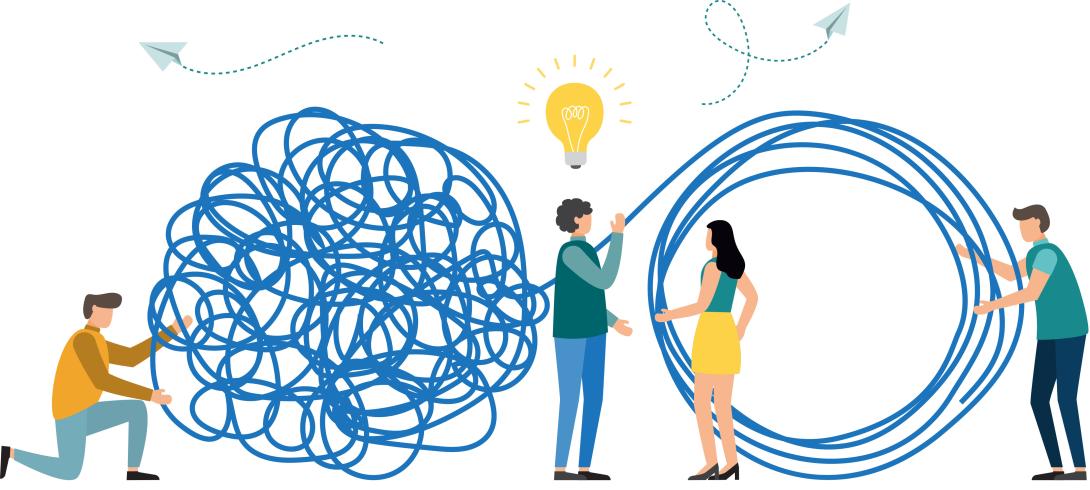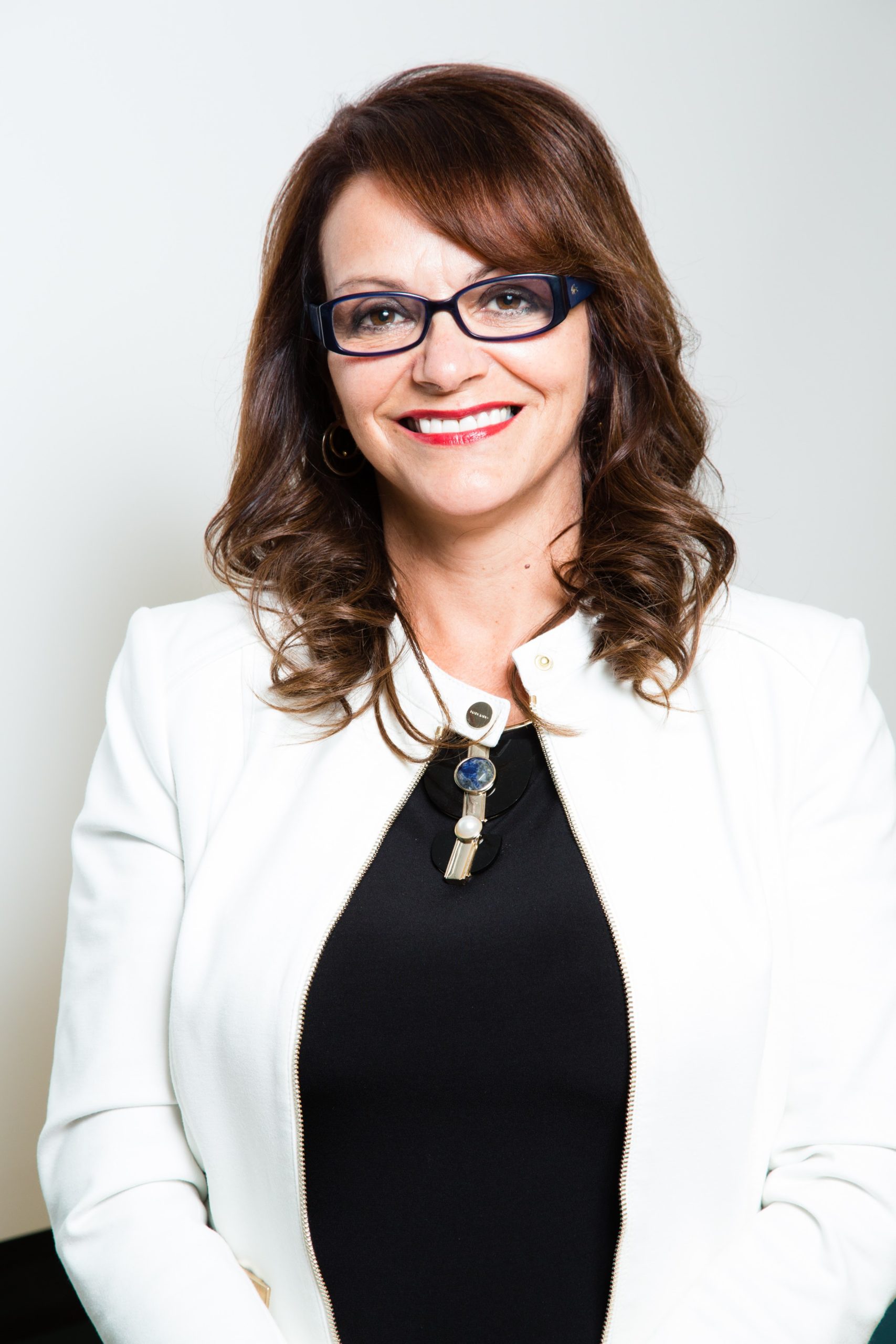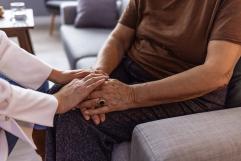
"The pandemic has highlighted just how severe of an issue solitude and loneliness can be"
Interview with Nancy Heinrichs, the Executive Manager at NorWest Co-op Community Health in Canada.
NorWest Co-op Community Health focuses on engaging the community in cooperative health and wellness. How do you do it?
Engagement is one of NorWest’s key principles and values. It is important for us to stay connected with, and to engage our community. NorWest utilizes a variety of different approaches for quality community engagement. We pride ourselves on our interdisciplinary approach to service in which our diverse teams work together for our clients and community.
One of our greatest successes is our ability to build relationships with the community that we serve. Throughout all of our programs and services, we ensure that we are actively engaging with clients to ensure that we are developing trust and meaningful connection. As a result of this, NorWest has maintained exceptional community development team which focusses on engaging with community and building lasting relationships with its residents.
We have an active social media presence and continually try to engage community members through our virtual platforms. This became particularly important during the pandemic. We developed polls, posts, virtual programs and Facebook Lives to continue to engage with community members during an era of isolation where social interactions remained paramount to our presence as an organization.
NorWest supports resident-lead community advisory committees that enable residents to work together and plan to ensure that they can develop sustainable health equity for their community. Additionally, NorWest works with our co-op members, community members and clients to ensure that they have the opportunities to lead program and actively participate in programming. This helps residents have opportunities in leadership roles. Additionally, NorWest helps community members develop micro co-ops and social enterprises. We have worked with our community to form a catering co-op, which directly benefits our community and meet existing needs. Our Youth Hub has a youth-led advisory which directs not only program designs, but even what the Youth Hub looks like.
NorWest works with our co-op members, community members and clients to ensure that they have the opportunities to lead program and actively participate in programming
We host co-op member events to obtain input from our members. We have embarked on a program called the “WRAParound” model, which puts the participant at the centre of their care. They pick their own team members, and everyone helps the participant to work towards goals that they themselves have set. Participants’ team members can be both professional and natural supports. We are now working to use a variation of WRAParound across all programs. Ultimately, we are a co-op who values our members’ voices. We seek to use this model of inclusión in all of our community engagement.
NorWest works for a healthy lifestyle with a lot of programs in the areas of nutrition, active living, smoking cessation, mobility issues, chronic disease prevention, and management. The best choice for old age is to take care of our health when we are young. Is this the real challenge? Do people understand the importance of being healthy for a good old age?
NorWest has a strong philosophy that healthy choices begin as early as possible. We focus not only on the individual, but on the communities and families to ensure everyone has access to the healthy choices. We work alongside community to make sure that these choices are relevant to age, economics, culture, etc. We believe that healthy choices should be available for everyone while also being relevant, achievable and culturally sensitive. We work to reduce barriers to healthier life styles, and help people to implement realistic goals to ensure that they stay as healthy as possible.
It is indeed a challenge to ensure the younger population understands the impact of healthy choices as they age. We do, however, have a number of programs and services geared towards helping youth embrace healthy lifestyles. This includes programs such as Kids in the Kitchen, a program which teaches youth how to cook and making healthy choices in the kitchen.
The Hans Kai Youth program targets teenagers in a high school setting. It is based around healthy lifestyle choices that varies from physical, mental and sexual health, as well as developing leadership skill. The overall goal is to have the youth act as mentors around healthy choices to their peers, as well as for younger students. Additionally, our Youth Hub has a variety of programs and services aimed at making lifelong healthy choices.
We also work with families around healthy lifestyle choices through an array of services and programs, and try to ensure a culturally sensitive lens for this as well. We find that it can be challenging to link the outcomes to having a healthy older age to the younger population. But we do believe we have the right programs and services in place to do so.We focus not only on the individual, but on the communities and families to ensure everyone has access to the healthy choices
You have programs like HANS KAI, a community-led health program developed and delivered through NorWest Co-op Community Health and is available across Canada. Could you explain this program?
HANS KAI originated in Japan, and NorWest adapted it for a Canadian audience in 2010. HANS KAI is a participant-led health program developed and delivered by NorWest Co-op Community Health. It empowers participant-led groups to influence their health through healthy eating, physical activity, social support and physical health. HANS KAI addresses and improves management of chronic conditions such as diabetes, heart disease, depression, anxiety, and obesity. Research has shown improvements in mental health, physical activity, social connectedness and health knowledge. According to a research & evaluation report, 66% of HANS KAI participants made health and behavioral changes as a result of their involvement.
Furthermore, we had initially statistically significant improvements in mental health among participants after 1 year. Since then, we have worked with groups in the United Kingdom, and the United States of America, as well as across Canada to implement Hans Kai as a community lead program that ensures people have tools at their disposal to make healthy lifestyle choices that not only benefit them, but their families and communities. We believe that by people having agency over their own health and having strong support networks will improved one’s health outcomes. Hans Kai is a low-cost and easy-to-implement program. We are currently in talks to adapt Hans Kai for a Kenyan context as well.
What profile or type of people do use your cooperative? What feedback do you have from them?
The NorWest Co-Op Community Health Centre was started in 1972 in the north-west corner of Winnipeg in response to the community being drastically underserved for health programs at the time. It was envisioned to be a one-stop shop offering a large variety of healthcare programs and services. The community in North-west Winnipeg has traditionally been an extremely culturally diverse community. Historically, NorWest’s community has included a large indigenous population.
Over the years however, there has been a shift in how many newcomers to Canada we serve, especially from South Asian countries. Our community tends to have a wide variety of incomes from some relatively high incomes to some of the lowest in Winnipeg. We also serve the entire lifespan in our community. Our co-op members come from our community, so as such, they come from all walks of life. NorWest has since growing to serve beyond just the north-west corner of Winnipeg. Some programs we offer reach the entire city and or province. We take pride in the fact that we are open to anyone, making ourselves widely accessible to anyone in need.
The Co-operative Housing Association of Manitoba Inc. (CHAM) was formed on January 1, 1960. It is a long time, how has changed NorWest since then. What are the most important challenges you must confront?
NorWest is currently celebrating his 50th anniversary this year. Quite a bit has changed in our community since then. One thing has remained constant, however, is the importance of cooperatives in people’s lives. We are incredibly proud to be the only health co-op currently in Manitoba. We believe that co-ops offer community the opportunity to have a voice in healthcare, and a fair say in all of the types of services and programs to best meet the needs of their community. But beyond that, it also opens up opportunities to partner with other cooperatives, whether that is for information sharing, partnering on initiatives such as those related to food, finances, employment, etc.
By far away the biggest challenges we will continue to face is inequality. NorWest has recently embarked on a multi-year strategic plan that has health equity at the forefront. Although we knew this before the pandemic, the pandemic has highlighted the many health inequalities that put people at risk of more severe health outcomes. We need to use a health equity lens so that all of our community has access to services, food security, employment, guaranteed income, and above all else, safety and a sense of belonging. These will continue to be our greatest challenges as we navigate our way out of the pandemic and moving forward. Although challenging, we believe we can continue to achieve health equity for our community.
We need to use a health equity lens so that all of our community has access to services, food security, employment, guaranteed income, and above all else, safety and a sense of belongingCooperation, innovations, technology, and creativity are the four pillars of a better future?
Yes, absolutely. Embracing the pillars of cooperation and creativity by supporting each other and ensuring that the world has access to programs and services that are leading edge, and make it a significant impact on their health and well-being is of paramount importance. Innovation is the key to all of these sectors however, it’s important to share those innovations. It’s also important to be creative and think that we can do things that might not have worked prior, or to try something new. NorWest is known for taking those risks and sharing the results. NorWest’s Hans Kai project was adapted for Canadian context. We also started our Youth Hub program, the development of a Youth Employment program, our Gilbert Park youth engagement program, and our Community Food Centre, are all examples of innovation. All of these programs were created based on the needs of the community or, we have adapted from prior programs and services to fit in new in emerging needs. Furthermore, we share these programs with other groups and organizations, hoping to make a difference in the health and well-being populations around the globe.
Technology has become more important than ever since the pandemic. Social media, virtual meetings, telehealth, and communication have all changed with the advent of technology. Our use of innovative technology and social media has given us an opportunity to implement new ideas and improve health outcomes. Never before have these 4 pillars been more important than with the development of vaccines during the COVID-19 pandemic. Across the globe, we have worked across sectors to not only get vaccines developed in record time, but also to work with community to understand why they should be accessing vaccines, to addressing vaccine hesitancy, and remove very barriers for those needing access to vaccines. The importance of these four pillars has never been more apparent than when it has come to the Covid vaccine strategies. It is these pillars that will enabl us to have a better future.
Medicine in the future, especially for old people, will be more personalized and more technological (with new smart medical devices). How do you manage it in NorWest Co-op?
NorWest prides itself on having the clients at the center of their care. As we move forward that’s going to be more important than ever. NorWest is embarking on a new model that we are currently designing. It’s mixing 2 existing models: The WRAParound and the NUKA model. Both of these models emphasis having clients at the center of their care. It will be more personalized as the client will be choosing their team of health care providers.
We currently offer home visits to people who may have mobility issues, or have their hands full with parenting. We have gone door to door for those who are homebound, to offer to vaccinate them right then and there. During the pandemic, we created support access and help phone lines, helping connect individuals to services such as medical, family violence or general support.
During the pandemic we created “Zoom rooms” ( a spot to access computers and Zoom) for community members without technology access to be able to attend their virtual meetings and interviews. In some cases, we were able to provide smart phones and training on how to use them. Additionally, we have also created apps for programs such as HANS KAI.
The demography has changed the world, with more elderly people. It is one of the challenges we must confront. We live more years, and we have more chronic illnesses. How does NorWest work for these people? Do you have specific programs?
As our population ages, changes in healthcare needs are inevitable. Not only do we need to focus on helping people stay healthy as they age, but we need to be able to address one’s emerging health issues as they surface. NorWest offers a variety of services from social support and networking for isolated or older individuals, to senior specific programs such as seniors exercise programs, heart health programs coping with chronic disease and nutrition programs. We also have an increase in programming focus on mental health.
We work closely with the neighborhood seniors resource council to ensure we understand what programs and services seniors in our community want and needs. We work to ensure we reduce barriers to access. This might include having senior specific lunches or having a seniors’ information sessions. This also includes being able to partner on programs when appropriate. To ensure inclusivity, and due to our significant indigenous community, we have an Elder on staff who ensures that we are also respecting the cultural needs of our indigenous population. It is important for us to have a cultural component to our programs as we do service a very diverse population.
Lastly, We created volunteer opportunities. Many of these opportunities are utilized by seniors looking to be able to help NorWest and stay connected. It also allows them to either develop a new skill set or share one that was previously existing. We work closely with the neighborhood seniors resource council to ensure we understand what programs and services seniors in our community want and needs
Today, solitude is one of the main problems we have with the health of older people. How do you manage it? Do you have a specific program?
Solitude is indeed a problem. The pandemic has highlighted just how severe of an issue solitude and loneliness can be. NorWest has programs aimed at reducing isolation and improving social connections. Hans Kai, although aimed at improving of wide variety of health indicators, has a strong component of social connection and social support. This is one of the highlights of our research and evaluation studies, showing just how important those social connections can be. We also have our volunteer program and our community lunches at our Community Food Center that offer programs to seniors that foster connections.
Additionally, our resource centres offer drop-in and specific programs aimed at social support. We also have many opportunities for community members to participate in advisories to be able to share their skills and volunteer. We seek to get input from the community on other programs and services that they may needs. NorWest has a wide variety of opportunities to access these programs whether it be virtual or in person. We definitely understand just how important social connection and reducing isolation are to the health and well-being of our community and in particular, seniors.
Nancy Heinrichs
Is the Executive Manager of NorWest co-op Community Healthy, a non-profit-making health cooperative and a community health agency in Winnipeg (Canada). Nancy has defined her career as a philosophy of opening, integration and collaboration, seen through a community outlook and her work has been essential in the growth and development of NorWest Co-op Community Health over the last 19 years. Since that time, she has never stopped backing new innovative projects that tackle the community’s needs.




